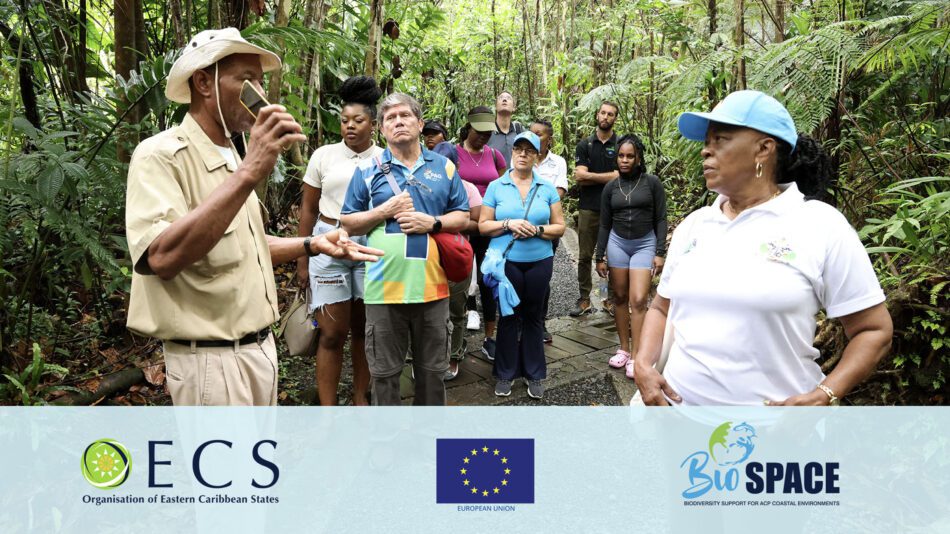OECS Creates Opportunities for Collaboration through the Establishment of a World Heritage Sites Network

May 16, 2024 — The Organisation of Eastern Caribbean States (OECS) Commission held a significant workshop in the Commonwealth of Dominica from May 7-10, 2024, to establish a World Heritage Sites Network in the OECS. This initiative aims to enhance the management and preservation of the region’s invaluable cultural and natural heritage.
Currently, five OECS Member States have sites inscribed on the UNESCO World Heritage List: Antigua and Barbuda with the Antigua Naval Dockyard and Related Archaeological Sites; Commonwealth of Dominica with the Morne Trois Pitons National Park; Martinique with the Volcanoes and Forests of Mount Pelée and the Pitons of Northern Martinique; St. Kitts and Nevis with the Brimstone Hill Fortress; and Saint Lucia with the Piton Management Area. Additionally, Dominica, Grenada, St. Kitts and Nevis, and St. Vincent and the Grenadines collectively have 11 sites on the tentative list.
The workshop focused on several key objectives establishing a network of World Heritage Sites, strengthening site management, increasing income generation opportunities to support livelihoods and encourage community involvement, sharing best practices and lessons learned, and contributing to preserving biodiversity and minimizing threats to biodiversity loss within these sites.

According to UNESCO, listing in this prestigious category raises awareness among citizens and governments for heritage preservation, leading to increased protection and conservation efforts. This recognition may also result in financial assistance and expert advice from the World Heritage Committee.
Minister Cozier Frederick, Minister for the Environment, Rural Modernization, and Kalinago Upliftment in the Government of Dominica, welcomed the workshop participants. In his opening remarks, he emphasised the importance of preserving heritage for future generations and highlighted the role of World Heritage Sites in preserving culture and natural spaces. He stated:
“The trust assets passed on to us by ancestors can be kept in good standing for future generations … We’ve realised that the preservation of our heritage and natural spaces are important for a number of reasons. We’ve realised that the World Heritage Sites help to preserve our culture as a critical part of our movement, and it’s especially important for us as post-colonial Caribbean States.”
Mr. Chamberlain Emmanuel, Head of the OECS Commission’s Environmental Sustainability Division, addressed participants virtually. He underscored the benefits of establishing a network of sites in the OECS, including raising awareness, enhancing protection and conservation, and potentially receiving financial assistance and expert advice from the World Heritage Committee. Mr. Emmanuel concluded by encouraging participants to
“fully participate, share your thoughts, experiences, doubts and ideas that will contribute to effective co-creation, as we seek to operationalize the vision of a network which can have tremendous impact on the world heritage sites and the critical biodiversity and other natural and cultural features contained in them and many benefits that support sustainable livelihoods in the Region.”
The three-day workshop concluded with a site visit to the Dominica Trois Piton National Park, where participants experienced the breathtaking Emerald Pool, a highlight of the park.
The workshop was funded through the European Union’s Biodiversity Support Programme in ACP Coastal Environments (BioSPACE), geared at supporting and improving the management and sustainable use of coastal and marine resources in the region.






